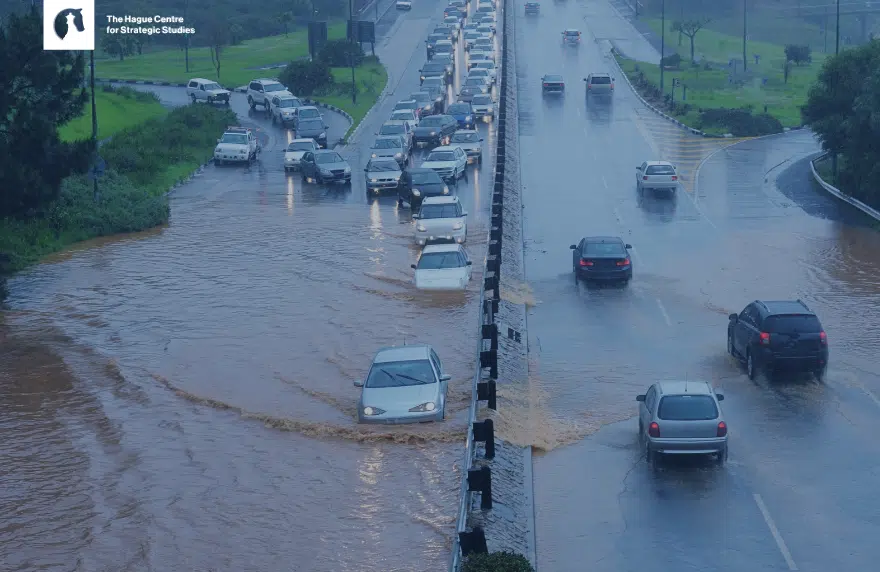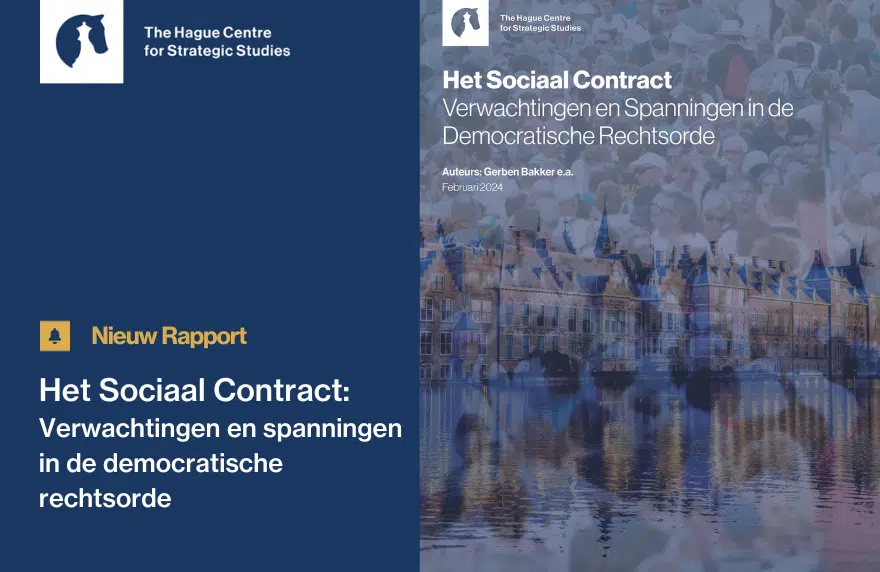The new HCSS report “Security in a Heated World: Climate Change and Social Stability”, authored by Laura Birkman, Fiona De Cuyper, and Julie Jeuken, explores how climate change is impacting social stability in the Netherlands. The report is an initial exploration of the complex interplay between climate-related events and the socio-political, economic, and security dynamics within our country.
Climate Change as a Risk Multiplier
Climate change acts as a so-called risk multiplier: it intensifies existing ecological, economic, and social tensions. Europe — the fastest-warming continent — is already experiencing more frequent extreme weather events, with consequences for food security, public health, energy supply, and financial stability. At the same time, hybrid threats such as disinformation about climate impacts can further fuel social unrest and polarization.
Impacts on Security and Law Enforcement
The police are increasingly confronted with climate-related incidents and societal tensions. These include migration flows, rising crime following natural disasters, or infrastructure disruptions due to extreme weather. Police personnel are also personally affected, putting pressure on their wellbeing and performance. The report underscores the importance of strategic preparation and investments in equipment, training, and internal resilience.
Pressure on Resources and Geopolitical Tensions
Climate change influences broader global trends such as population growth, resource scarcity, and geopolitical fragmentation. Scarcity of water, food, and energy can lead to social unrest and international competition. These developments strain global cooperation, including within climate policy frameworks.
National Security Under Pressure
The Dutch National Security Strategy now recognizes climate change as a catalyst for threats. It affects all of the Netherlands’ vital interests — from physical safety to economic continuity. Climate effects can erode public trust in government and democratic institutions, further undermining social stability.
Strategic Recommendations
To address these risks, the report offers concrete recommendations:
- An integrated policy approach that combines climate and security;
- Improved information sharing among security stakeholders;
- Increased international cooperation on security issues;
- Joint crisis preparedness and the prevention of siloed approaches;
- Integration of climate scenarios into local policymaking;
- Strategic positioning of the police within the climate-security domain;
- Investments in equipment, training, and the wellbeing of security personnel.
Conclusion
Climate change is not a distant issue — it is already affecting the social stability of the Netherlands. The report calls for urgent action, collaboration, and investment to ensure our society remains resilient and secure in a heated world.
Authors: Laura Birkman, Fiona De Cuyper, and Julie Jeuken.
With contributions from: Irina Patrahau, Linde Arentze, Abe de Ruijter, Frank Bekkers, Tom Middendorp, and Gerben Bakker.
This research was conducted by HCSS on behalf of the Dutch police as part of the multi-year Strategic Police Monitor program. The program aims to provide an outward-looking and forward-thinking perspective on relevant trends and developments, to support the strategic decision-making of the Dutch police. This study is not intended as a comprehensive scientific analysis but serves as an initial exploration to spark dialogue.
Cover image: Flooding Road, Canva












